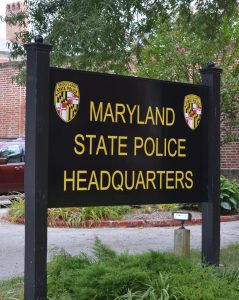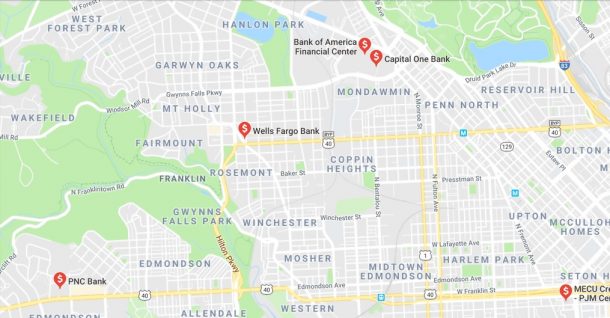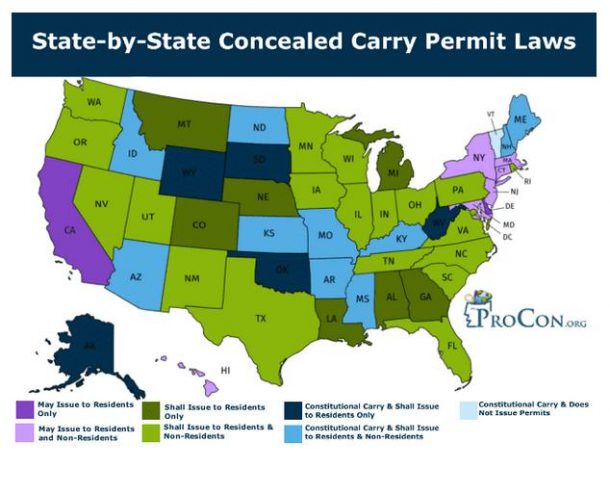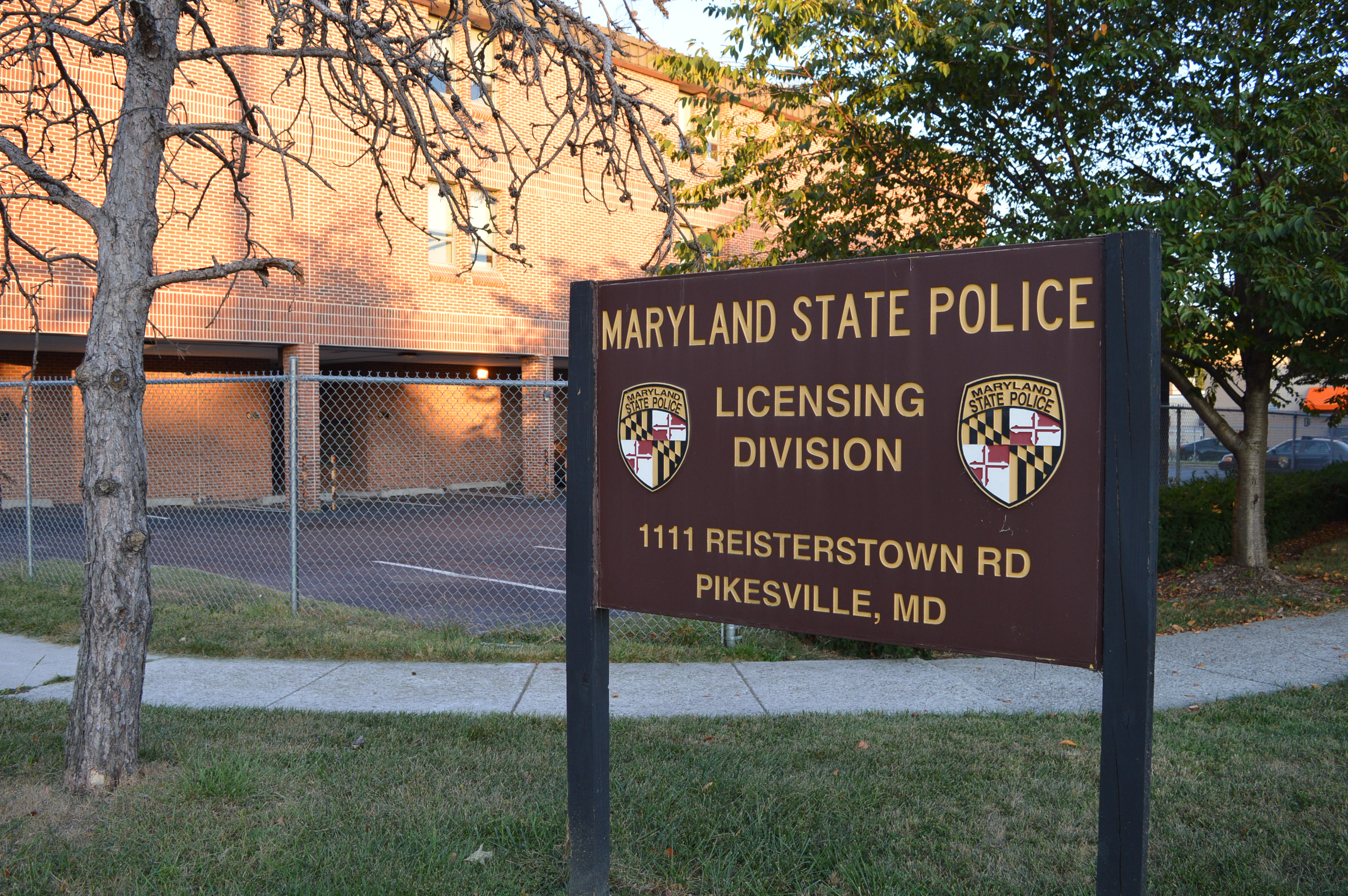Concealed Carry: Does Maryland State Police Discriminate, Intimidate Lawful Applicants?
BALTIMORE — In a quest to reduce violent crime in Baltimore City and other jurisdictions, the Maryland State General Assembly has enacted some of the most stringent gun control laws in the land. But as the body-count in Baltimore continues to climb, many argue that these laws have had the adverse results of flooding the city with illegal weapons, while effectively disarming law-abiding citizens. Worse, some contend that, even as an ever-growing criminal element runs amok, the Maryland State Police Handgun Wear and Carry Permit process deters and discriminates against poor and minority applicants.
To understand – from both a professional and a personal level – the presumed problems which underlie Maryland’s concealed carry permit application process, we spoke with Post-Examiner contributor Brian Bissett. Bissett – a U.S. Government employee with a higher-level security clearance – is a Howard County resident and the author of two peer-reviewed books on Data Analysis. He is currently appealing his second consecutive restricted Maryland concealed carry permit and has asked the Maryland State Police to open their files as a part of that appeal process.
This is the first part of a two-part interview.
BPE: We’ve talked occasionally about your ongoing problems in obtaining what you consider to be an appropriate concealed carry permit from the State of Maryland. Would you share your story with us now, on the record, and bring us up to date on the current review process?
Bissett: Well, in my own case, I can tell you that, when I first applied for a Wear and Carry Permit in May of 2016, I was issued a permit which had so many restrictions attached, it could have led to my arrest. An informal review by the State Police in October of that year left the restrictions in place, so I challenged that decision, with the Maryland Handgun Permit Review Board (HPRB.) After a hearing in February of 2017, the Board agreed with me, and the restrictions were lifted. A new, unrestricted permit was issued to me in April, 2017.
In fact, there’s a video of my challenge on YouTube.
When I went to renew earlier this year, I did not hear from the State Police for some 80 days. With a week remaining to renew, I called the State Police and asked for a status of my application. They said they would not give out that information over the phone, and I would have to come into the Pikesville office in person to learn the status of my permit.
I felt they were jerking me around, so I spoke with an attorney, who said his other handgun permit clients get updates over the phone all of the time.
Within three days of the lawyer sending the unit commander a letter, I had my permit. But – being as they have to have the last word on everything – they reinstated restrictions on my permit. These were the same restrictions the review board already deemed should not be there.
It’s important to point out here that the Maryland State Police were never given the authority to do this, yet they do it anyway. The brief I filed with the HPRB – which more likely than not will be eliminated by an override of Hogan’s veto – summarizes this matter concisely.
BPE: What kind of restrictions are we talking about here?
Bissett: One of the restrictions they placed on the permit was that I had to remain employed by my current employer, and if I left that place of employment, then the permit was no longer valid.
BPE: You have some sort of job with the Federal government?
Bissett: Yes, and with that job, I have a higher-level security clearance.

The State Police have a standard operating procedure of automatically giving people with a higher-level security clearance a permit. They just recently published this new standard operating procedure.
But there’s a catch. If you change jobs, your permit is invalidated.
What’s completely unreasonable about invalidating a permit here is, if you change jobs, your government clearance goes with you from job-to-job. So if I move, for example, from my present place of employment to say The Department of Homeland Security, my security clearance level moves with me. What this does is it really puts the person changing jobs at an undue disadvantage. It’s a huge headache, and they make you go through the entire permit process again.
I filed a motion with the HPRB stating that this policy was absurd on its face.
Again, I believe I was being jerked around, because I had embarrassed them on Youtube.
After my appeal session was recorded, it set a precedent that the State Police had to justify any restrictions they placed upon a permit. People who saw that video learned how to confront the State Police on appeal. As a result, not only were lot of restrictions overturned, but people who were initially denied permits were finally able to obtain them.
BPE: Can you give us one or two examples of cases which were overturned upon appeal?
Bissett: I saw one case at the HPRB, where a woman who was taking care of a child as a foster parent was concerned about having trouble with the real parents. Both of the real parents were drug addicts with extensive criminal records.
She said, “They’re not to see this child, but given their history, I would like a handgun for the protection of both myself and the child.”
The State Police said, “Oh, you don’t need a permit,” but the HPRB disagreed.
Another case I saw involved an African-American fireman from New York.
In New York City, he had police officer powers. He had a letter from his former commanding officer stating that he had been threatened in his job.

The Maryland State Police denied his permit request, saying it had been a long time since he had retired, and he didn’t apply within the one-year time limit.
That was apparently the colonel’s policy.
The fireman responded that he and his wife had retired to Virginia, where they lived for about a decade before having to move to Maryland to care for a sick family member.
The HPRB overturned that decision as well.
With the State Police being challenged, and a more reasonable standard repeatedly being applied, the General Assembly stepped in and voted to do away with any oversight of the Maryland State Police. For people without a lot of means, the result is they are stopped by the State Police and likely cannot afford to take the matter of their own self-protection to court.
BPE: Doesn’t this question of means come into play at the very start of the application process?
Bissett: Yes, the State Police want people to show that they are making frequent, high-dollar bank deposits, which go along with their business.
BPE: Wouldn’t that discriminate against, say, a house-keeper or a carpenter who is living someplace like Baltimore’s Sandtown/Winchester community?
Bissett: Well, it really hits the poor who are living in Baltimore for a number of reasons. One, I was told – though I don’t know this for a fact – is that with the recent changes in MTA bus routes, a lot of stops in some of the poorer, sparsely populated areas have been eliminated. So, if you are a carpenter that lives in a house on a block of mostly vacant dwellings, you not only have the danger of a longer walk home, but you may be limited in your ability to get to a bank to make regular deposits. At least regular enough to satisfy the Maryland State Police.
The real whammy here is that, if you have a restaurant owner in Howard County, he can afford to hire an armored car to pick up his nightly deposits. He may never touch the cash himself, but he can go to the State Police and say, “Look, I’m making nightly, high-dollar deposits. I need a gun permit.” And he’ll probably get it.
The janitor in Prince Georges County, or the carpenter in Baltimore City, may not be making a lot of money with their businesses, but they may still be carrying that money with them everyday. By virtue of the fact that they are working long hours, they may not be able to go to the bank frequently. Men and women, such as these, are being told that they do not need a permit. The real injustice here is that, if the business owner in Howard County is held up, it would be an inconvenience. If the hard-working carpenter, janitor or house-keeper is held up and loses three hundred dollars, that may be the difference between them paying their rent or buying groceries.
BPE: These may also be people who don’t use a bank but will cash their checks at a convenience store or a liquor outlet?
Bissett: Right. Plus, a lot of people are only paid in cash, and that certainly doesn’t show up in many bank deposits.
But another example I’ll cite is of a bartender who worked at Chili’s. Because of his tips, he was leaving work every night with a pocket full of cash. The State Police wanted him to get his employer to endorse his application. Why is it that someone would have to get an endorsement from their employer in order to exercise their Constitutionally guaranteed right? Your employer shouldn’t have that kind of power over you.

BPE: You mentioned a moment ago that the General Assembly voted to do away with the HPRB. Doesn’t that essentially politicize the State Police?
Bissett: I think the State Police were already politicized. This is just my opinion, but I think they are very heavily influenced by (Attorney General) Brian Frosh. I don’t think they really operate independently, and given that their budget is decided on by the General Assembly, how could they remain apolitical in this process?
BPE: Why would the Legislature and the State Police want to effectively disarm law-abiding citizens?
Bissett: I think to answer that question, you have to go back to when the policies were first put into place. I believe that was in 1971.
At that point in our history, the belief was that if you allowed people to carry firearms, there would be mayhem in the streets. There would be unnecessary killings, and people would be less safe. That changed when Florida became the first state to allow anyone who desired to carry a handgun for self-protection to do so – provided they had a clean criminal record and took an appropriate safety course.
Again, there were predictions of pandemonium, but the exact opposite happened. This has led almost all other states to follow Florida’s lead. The few hold-out states are New York, New Jersey, California, Hawaii and Maryland.
So this all goes back to the mentality of early 70s that said, “We’ve got to get these guns off the streets; we’ve got to do something.”
There was a war going on, and a lot of civil unrest in the 60s and 70s, and in those five states I just mentioned, that bias has carried through to today. I think it’s almost a cultural thing with the Maryland State Police – that they will deny every permit that they can. And if the Maryland State Police can’t deny the concealed carry permit, then they will restrict it to the greatest extent that they possibly can.
(This is the first part of a two-part interview. The second part may be found .)


Anthony C. Hayes is an actor, author, raconteur, rapscallion and bon vivant. A one-time newsboy for the Evening Sun and professional presence at the Washington Herald, Tony’s poetry, photography, humor, and prose have also been featured in Smile, Hon, You’re in Baltimore!, Destination Maryland, Magic Octopus Magazine, Los Angeles Post-Examiner, Voice of Baltimore, SmartCEO, Alvarez Fiction, and Tales of Blood and Roses. If you notice that his work has been purloined, please let him know. As the Good Book says, “Thou shalt not steal.”


Your map shows West Virginia as Constitutional Carry and Shall Issue to residents only, I believe this is incorrect. From WV’s Handbook on Laws Relating to Firearms (2017) : In West Virginia, persons 21 years of age or older, who are not prohibited by state or federal law from possessing a firearm, and who are United States citizens or legal residents thereof are authorized by law to carry a concealed weapon within the state without first obtaining a concealed handgun license (“CHL”). This authorization applies to all such persons regardless of his or her state of residence. This is commonly known as “constitutional carry” which indicates a form of permitless or unrestricted concealed carry of a deadly weapon. See W.Va. Code § 61-7-7(c).
Within West Virginia borders, it’s constitutional carry for all law abiding US citizens as you stated. The “residents only” is if I live in West Virginia, I can get a West Virginia carry permit that allows me to carry in states that recognize it, like Virginia. However, if I live out of state (like in Virginia), I can not go to West Virginia and get a West Virginia permit to use in other states. The map labels are a bit confusing. The “resident only” just applies to the permits.